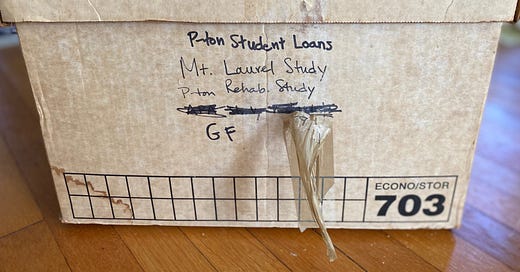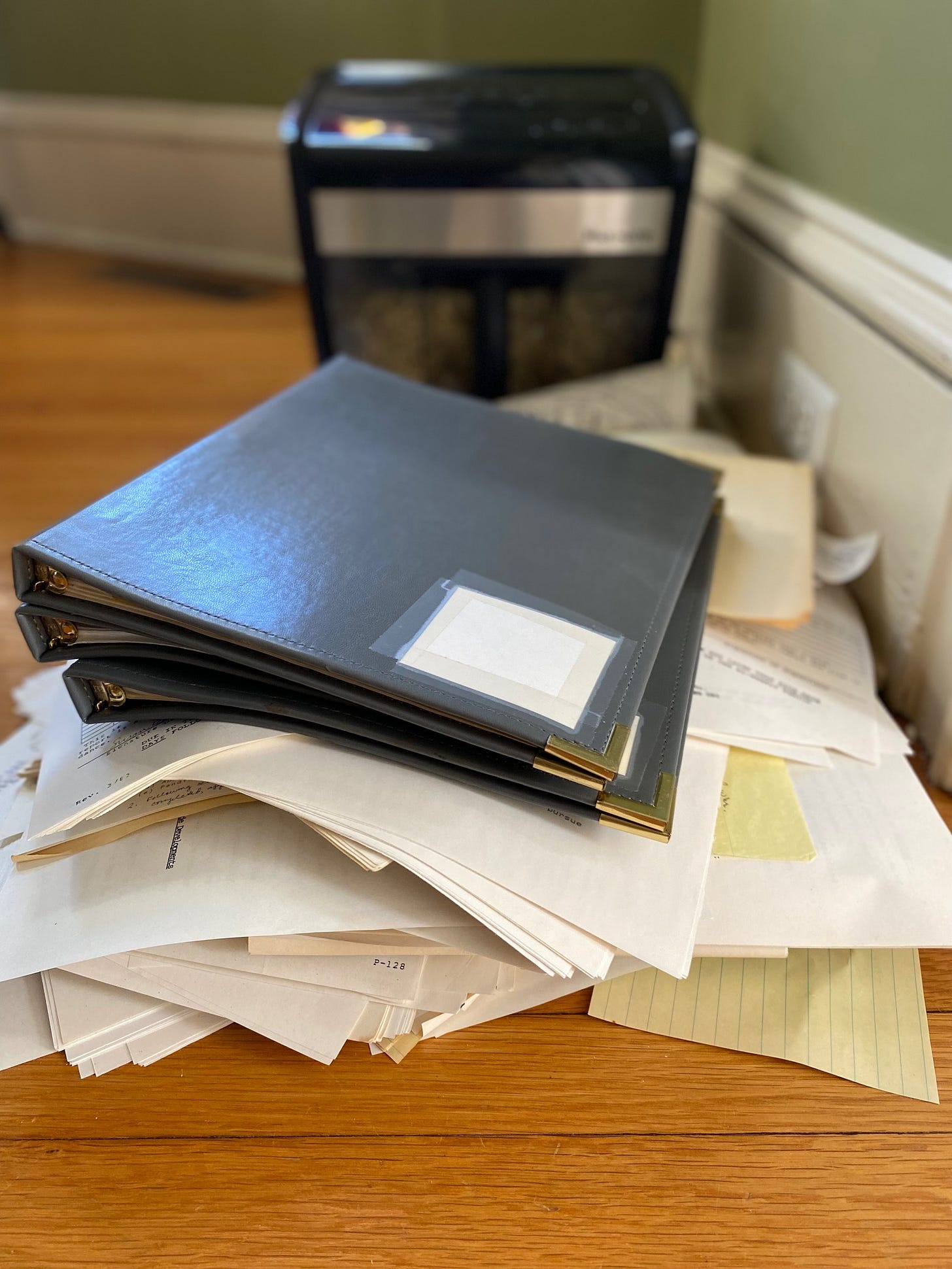This is a tough one, folks. As I noted in my very first post for this newsletter, like a particular former president, I have an attachment to paper and boxes. I don’t know about him, but for me, the printed word—if it documents some aspect of the past—may hold a time-capsule truth or clues about a former self, often lost to memory or morphed by the act of remembering or obliterated by the stories other people tell.
I lifted the lid on this box with the intention of dispassionately reviewing everything, taking some photos of, or scanning, a few critical pages, and then shredding it all.
I thought, I’ll make my peace with this and then make it go away. Slam on the brakes and cue the sound of skidding tires. Not so fast.
This box contained financial aid and loan documents for my undergraduate education at Princeton, 1980-1984; a couple of papers from my graduate program in public policy and urban planning at Rutgers; my GRE test scores to get into said program; a few reports on the state of affordable housing in New Jersey in the 1980s; and, mostly, meeting minutes, memos, financial pro formas, and advice from marketing and real estate professionals during the course of my employment from 1989-1991 as the first affordable housing manager for Princeton Township. Most of that material had been confidential, and that’s why I kept it, even though it long ago became irrelevant.
I promise to you, dear reader, that I did not read every single piece of paper in that box, although this is a very real risk every time I come across words anywhere (museum exhibits, cereal boxes, newspapers, email, my phone, billboards, menus, etc.). But I did flip through the three slim binders, my day planners, a smattering of memos, a couple of performance reviews (very interesting!), and a bunch of local newspaper clippings to remind myself of what was going on at that time and the chain of events.
When I started that job as the affordable housing manager, I was 26 years old and not long out of the planning program at Rutgers, with an emphasis on the development of affordable housing. My interest in this field had been sparked by my first full-time job out of college—that was not in the food service industry—as a field representative in Trenton for a new state homelessness prevention program and for the federal Section 8 rental assistance program. Oh, yeah, there were copies of correspondence with some landlords and tenants from that job in there as well.
Opening this box was a bit overwhelming — thoughts, memories, and connections came rushing at me. As an essayist, I welcome digressions on the page and in the way my mind moves, and this batch of material that has been out-of-sight, out-of-mind for so long has plenty.
The good news is that I did settle on a lot to shred or put into the recycling bucket. The, perhaps, unfortunate—no, let us think of it as fortuitous!—news is that I am not ready to let all of it go just yet. There’s a longer essay forming in my mind about the role of planning in my life, my employment history, volunteerism, motherhood, and being a creative. I clearly have more to think about and a longer piece to write than what I am cultivating here in this forum of relatively brief posts.
So I will stop now… to be continued. I guess this is an example of the “Holding On” part of this newsletter’s title. If/when that longer essay appears in a literary journal, I will be sure to let you know!






Sue - I share the sentiments you describe in this and your earlier essays. In my own case, I keep valueless things I don’t need anymore because they allow me to remember the past. Without my old junk around me to trigger memories, I know my past will disappear in a very real sense, as if it had never happened in the first place. As I grow older and get use to the idea that someday I myself will disappear, I get more comfortable with the idea of letting go of my accumulated tangibles. They’re better off given away, recycled or tossed. Thanks for nudging me to action with your essays. - Tom
Always remember Nora Ephron: Everything is material. The thing I admire about your mind, Sue, is your ability to connect ideas with objects, emotional states, and real life.